Solar Water Heater Installation Chandler: Harness Power Of The Sun
That 20-year-old water heater sitting in your garage is doing more than taking up space - it's draining your wallet every single day. In Chandler's desert climate, traditional water heaters work overtime, especially during those scorching summer months when temperatures soar past 100 degrees.
But what if your water heater could do more than just heat water? What if it could harness Arizona's abundant sunshine to slash your utility bills while helping preserve our desert's precious resources?
In this guide, you'll learn:
1. How solar water heaters can cut your annual utility costs by up to 80% in Chandler's climate.
2. Which solar water heating systems work best for Arizona families.
3. Available tax incentives and rebates that can save you thousands on installation.
4. Expert maintenance tips for maximizing system performance year-round.

The Real Cost Of Traditional Water Heaters In Chandler
Living in Chandler means our water heaters put in serious overtime. Between our hard water and intense desert heat, conventional water heaters face unique challenges that drive up both operating costs and maintenance needs.
Operating Costs in Desert Climates
A standard 50-gallon electric water heater in Chandler typically costs $650-800 per year to operate. Why so high? Our desert climate means: Incoming water temperatures are higher, making heaters work harder to maintain stable temperatures. Hard water buildup reduces efficiency by up to 30% within just 2-3 years. Summer temperatures above 100°F force systems to cycle more frequently. Most systems waste 20-30% of energy fighting heat loss.
The Hard Water Factor
Chandler's notoriously hard water does a number on traditional water heaters: Scale buildup reduces heating efficiency dramatically. Sediment accumulation shortens tank lifespan by 3-5 years. More frequent maintenance is required to prevent system failure. Replacement parts wear out faster due to mineral deposits.
Energy Waste Adds Up
As traditional water heaters age in our climate: Efficiency drops 5-10% each year without proper maintenance. Heat loss through tank walls increases. Recovery time gets longer, using more energy. Parts work harder, leading to more frequent repairs.
Environmental Impact
A standard electric water heater in Chandler: Produces about 4,000 pounds of CO2 emissions annually. Uses up to 30% more energy than newer efficient models. Contributes to peak energy demand during summer months. Wastes thousands of gallons of water per year through inefficient operation.

Solar Water Heater Systems: Perfect For Chandler's Climate
With over 300 sunny days per year, Chandler offers ideal conditions for solar water heating. Let's break down how these systems work and
why they're particularly effective in our Arizona climate:
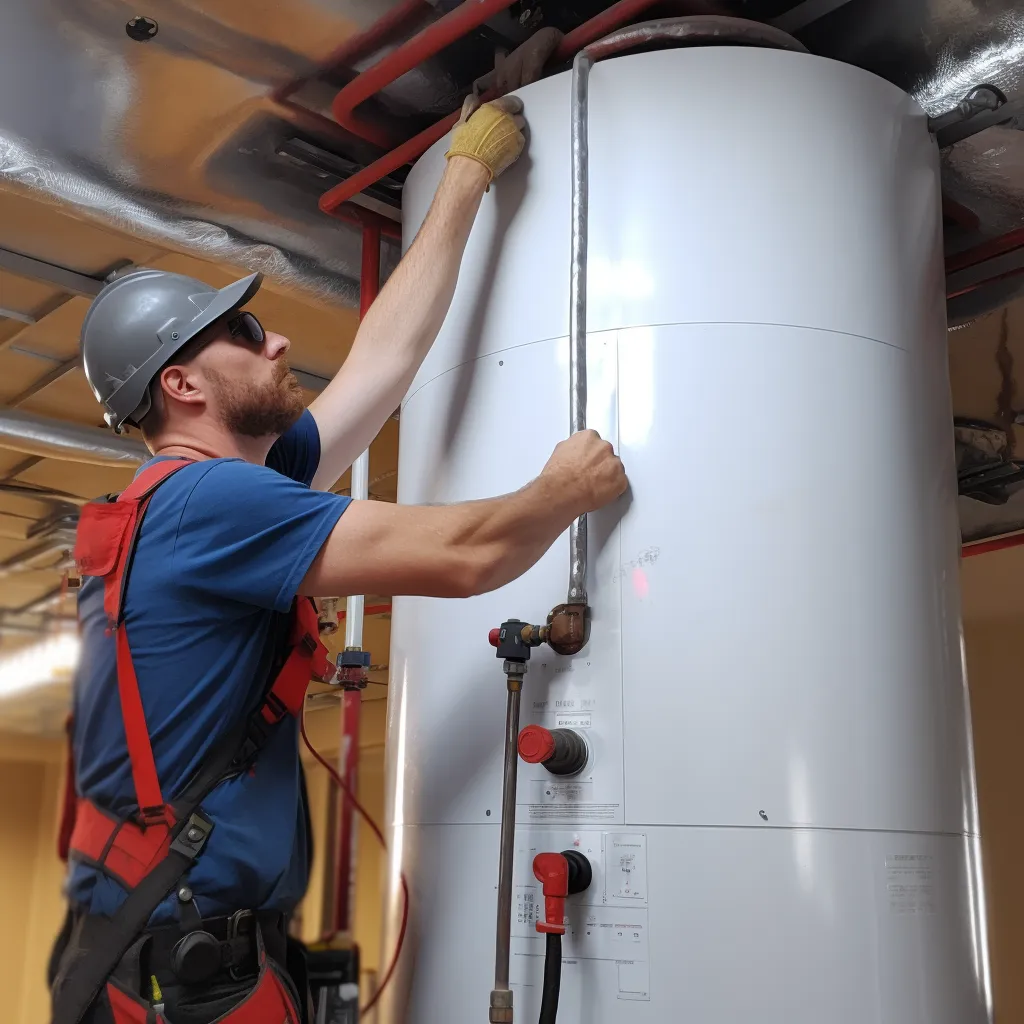
Types of Solar Water Heaters
Two main systems work well in Chandler:
Active Systems
Pumps and controls circulate water/heat transfer fluid. More efficient in extreme temperatures. Better for larger households (4+ people) Allows flexible tank placement.
Passive Systems
No mechanical parts to maintain. Lower installation costs. Perfect for smaller households Extremely reliable in our climate.
How They Work in Arizona's Weather
Solar water heaters adapt perfectly to our local conditions:
Morning sun preheats water for peak morning usage. Heat collection peaks during high-demand afternoon hours. Storage tanks maintain temperature through evening. Backup systems provide hot water during rare cloudy days.
Monsoon Season Performance
Modern solar water heaters handle our unique weather patterns:
Built-in storm protection features. Automatic overflow systems for heavy rains. Dust-resistant collector surfaces. Lightning protection systems.
Smart Technology Integration
Today's systems offer advanced features: Mobile app temperature control. Usage tracking and efficiency monitoring. Automatic adjustment to weather conditions. Integration with existing smart home systems. Real-time performance data.

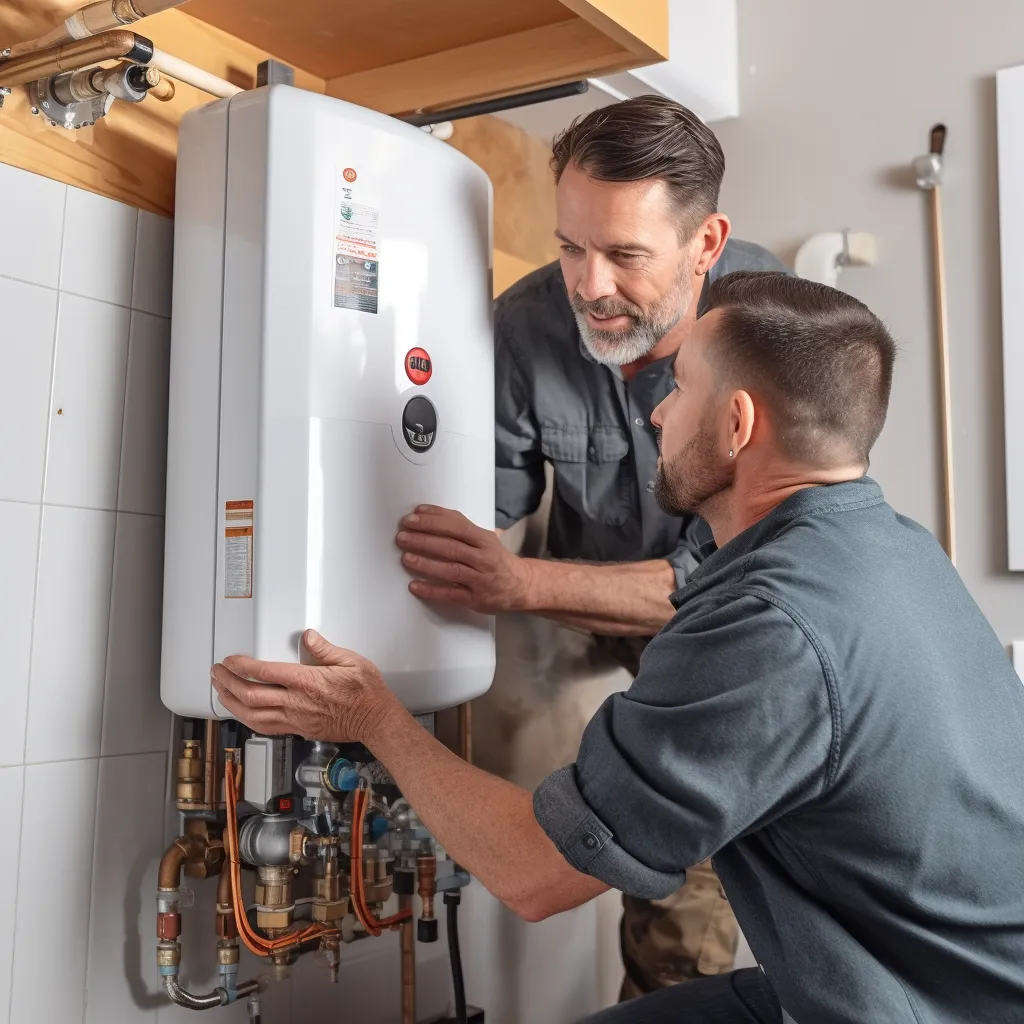
Making The Switch: Solar Water Heater Installation Process
Let's walk through exactly what happens when you install a solar water heater in your Chandler home. At MIL-SPEC, we've refined this process to be smooth and efficient while meeting all local building codes.
Site Assessment
Before installation begins: Roof structure evaluation. Solar exposure analysis using specialized tools. Tank placement options review. Existing plumbing system inspection. Smart meter compatibility check.
Installation Steps
Mounting Hardware Setup: Secure roof attachments installed. Support structure assembled. Weatherproofing applied. Load distribution checked.
Solar Collector Placement: Optimal angle set for Chandler's latitude. South-facing orientation when possible. Multiple panel configuration for larger homes. UV protection coating applied.
Tank and Piping Installation: Storage tank positioned. Insulated piping runs created. Anti-scald valves installed. Pressure relief systems connected.
System Integration: Backup heater connected. Smart controls wired. Temperature sensors placed. Flow meters installed.
Timing and Duration
Typical installation timeline: Pre-installation inspection: 1-2 hours. Main installation: 1-2 days. System testing: 4-6 hours. Final inspection: 1-2 hours.
Post-Installation Setup
After installation, we: Configure smart monitoring systems. Set temperature preferences. Program timing controls. Connect mobile app features. Test all safety systems.
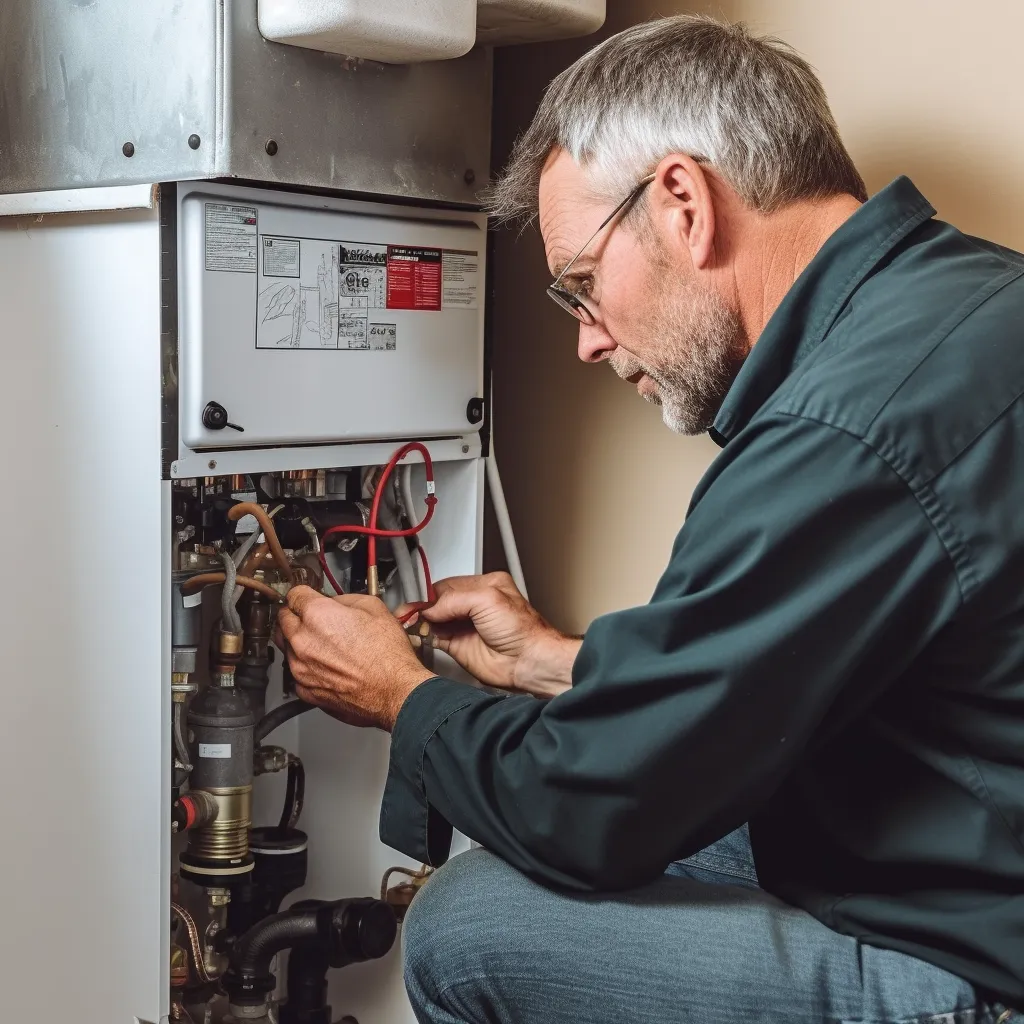
Financial Benefits and Tax Incentives For Homeowners
Installing a solar water heater in Chandler comes with significant financial advantages. The combination of federal, state, and local incentives makes 2024 an excellent time to upgrade your system.
Federal Tax Credits
Available tax benefits include: 30% of total system cost through 2032. No maximum limit on credit amount. Covers installation and equipment. Can be combined with other incentives.
Arizona State Programs
State-level benefits: Solar equipment sales tax exemption. Property tax exemption for added value. Additional state tax credit up to $1,000. Net metering benefits for excess energy.
Chandler Local Rebates
Local utility companies offer: SRP sustainable water heater rebates. APS energy efficiency incentives. Water conservation credits. Installation cost reimbursements.
Cost Breakdown
Average costs for Chandler homes: System Costs: Equipment: $4,000-$6,000. Installation: $2,000-$3,000. Permits and inspection: $200-$500. Smart controls: $300-$800.
Savings: Monthly utility reduction: $50-$80. Annual maintenance savings: $100-$200. Water bill reduction: $10-$30 monthly. Extended equipment life: 5-10 years longer.
Return on Investment
Typical ROI timeline: Break-even point: 4-6 years. Monthly savings start immediately. Property value increase: 3-4%. System lifespan: 20+ years.


How To Maintain Your Solar Water Heater
Proper maintenance keeps your solar water heater running efficiently in our unique desert climate. Here's what you need to know about keeping your system in top shape.
Regular Maintenance
Schedule Monthly Checks: Visual inspection of collectors. Temperature and pressure readings. Smart system performance review. Leak detection walkthrough.
Quarterly Tasks: Clean collector surfaces. Check support structure. Test pressure relief valve. Inspect pipe insulation.
Annual Service: Full system inspection. Tank flush and cleaning. Anti-freeze levels check. Sensor calibration. Smart control updates.
Long-Term Performance Benefits
When properly maintained, your system delivers: Consistent hot water temperature. Stable energy savings. Reduced scale buildup. Extended equipment life. Better water quality.
Smart Monitoring Advantages
Modern systems provide: Real-time performance data. Early problem detection. Usage pattern analysis. Efficiency optimization. Remote troubleshooting.
Water Conservation Impact
Solar water heaters help preserve resources: Less water waste during heating. Reduced energy consumption. Lower carbon footprint. Better temperature control. More efficient water usage.
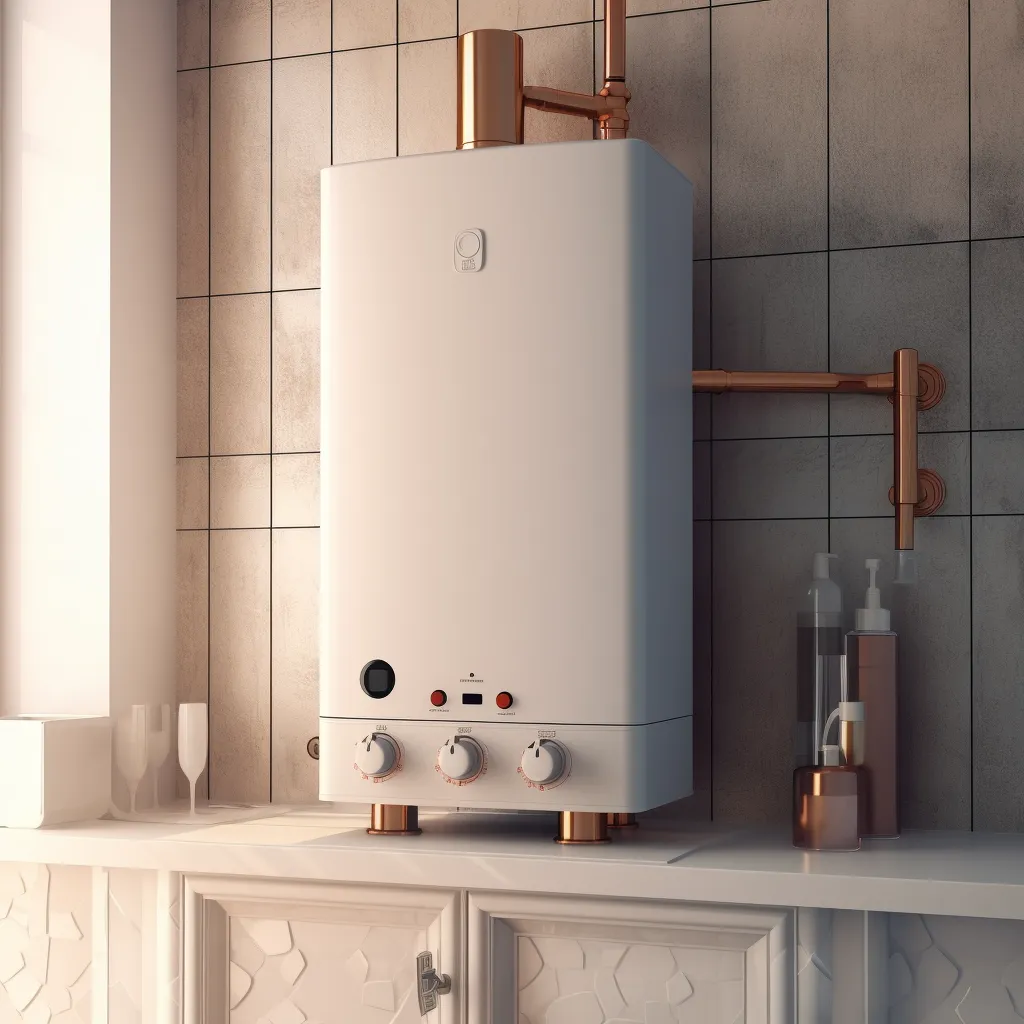
Seasonal Care For Your Chandler Water Heater
Living in Chandler means your solar water heater faces different challenges throughout the year. Let's break down how to optimize performance across our distinct seasons.
Summer Performance (June-September)
During peak heat: System reaches maximum efficiency. Morning preheating provides all-day hot water. Temperature controls prevent overheating. Extra energy goes to backup power.
Summer maintenance needs: More frequent collector cleaning. Check roof mounting integrity. Monitor pressure relief valves. Test overflow protection.
Monsoon Season Management (July-September)
Storm preparation: Clear drainage paths. Secure mounting hardware. Test backup systems. Update weather monitoring.
After-storm checklist: Remove debris from collectors. Check for water penetration. Test electrical connections. Clear dust accumulation.
Winter Operation (December-February)
Cold weather adjustments: Optimize angle for lower sun. Check antifreeze levels. Monitor backup heating. Test freeze protection.
Winter maintenance: Insulation inspection. Heat exchanger check. Temperature sensor testing. System pressure verification.
Spring Preparation (March-May)
Getting ready for summer: Deep system cleaning. Calibrate controls. Update smart settings. Check all safety features.
Licensed Solar Water Installation In Chandler

Proper installation by licensed professionals isn't just recommended - it's required in Chandler. At MIL-SPEC, we meet all local regulations and maintain complete certification for solar installations.
Chandler Legal Requirements
Required permits and licenses: City of Chandler building permit. Arizona Registrar of Contractors license. Solar installation certification. Plumbing system modification permit. Electrical work certification.
Documentation needed: System design plans. Engineering calculations. Safety compliance forms. HOA approval letters. Warranty registration.
Professional Installation Benefits
Working with licensed installers provides: Code-compliant installation. Proper safety measures. Valid equipment warranties. Insurance coverage. Emergency service access.
Safety Standards
We follow strict safety protocols: Load-bearing calculations. Electrical safety standards. Pressure system regulations. Temperature control limits. Fall protection measures.
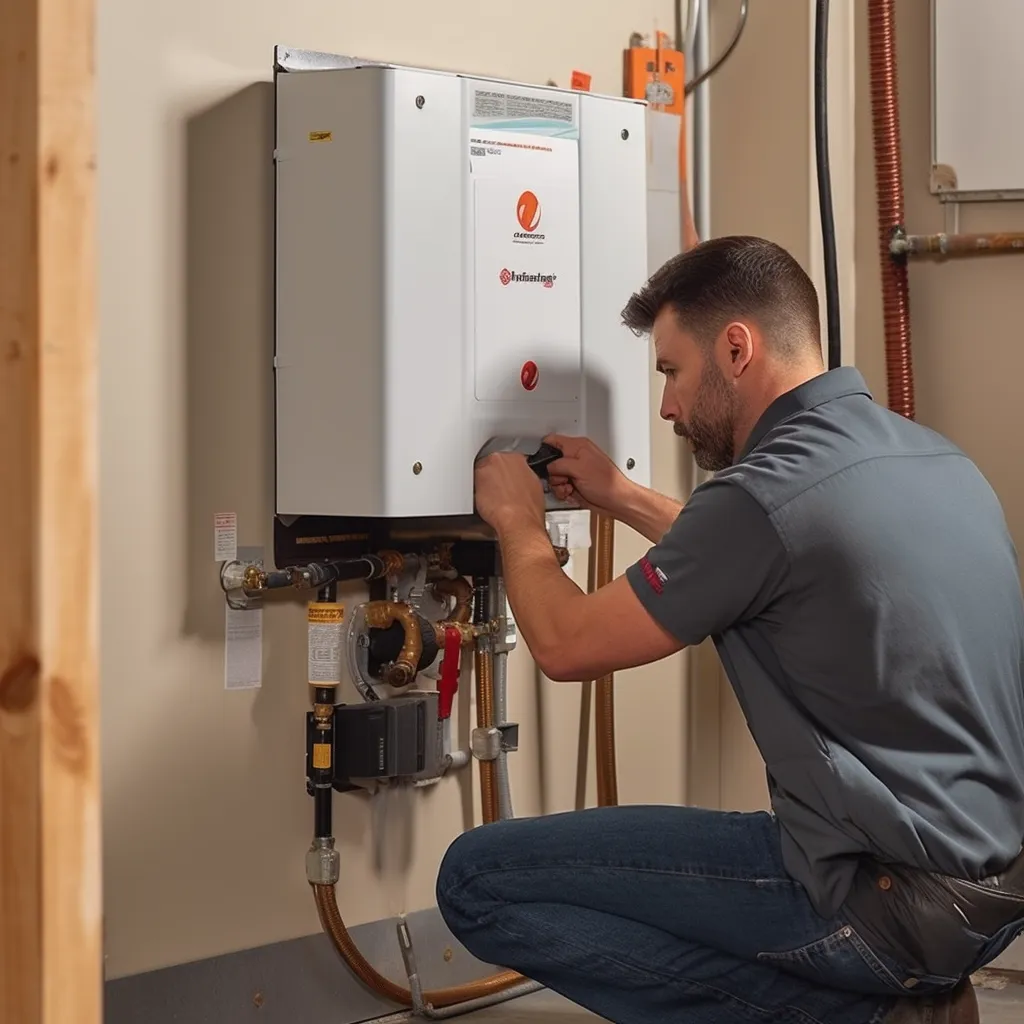
Smart Home Integration For Solar Water Heaters
Modern solar water heating systems work seamlessly with smart home technology. Here's how your new system can connect with your existing smart home setup in Chandler:
Smart Control Features
Basic monitoring includes: Temperature tracking. Energy usage data. Performance metrics. Maintenance alerts. Weather adaptation.
Advanced capabilities: Mobile app control. Voice command compatibility. Usage pattern learning. Automatic efficiency adjustments. Remote system management.
Mobile App Benefits
The control app provides: Real-time temperature readings. Energy savings reports. Maintenance schedules. Alert notifications. System diagnostics.
Integration Options
Compatible with: Google Home. Amazon Alexa. Apple HomeKit. Smart thermostats. Home energy monitors.
Data Management
Track important metrics: Daily water usage. Energy savings. System efficiency. Temperature patterns. Maintenance needs.
Frequently Asked Questions About Solar Water Heaters
Q: What's the average cost to install a solar water heater in Chandler?
A: Total costs typically range from $6,000-$10,000 before incentives. After federal and state tax credits, most homeowners pay $4,200-$7,000.
Q: How much will I save on my utility bills?
A: Most Chandler homeowners save 60-80% on water heating costs, averaging $50-$80 monthly savings.
Q: How much roof space do I need?
A: A typical system requires 40-100 square feet of roof space, depending on your household size and hot water usage.
Q: What happens during power outages?
A: Most systems include backup power options and can still provide hot water during outages.
Q: How do you handle Chandler's hard water?
A: We install specialized filters and treatment systems to prevent scale buildup and extend system life.
Q: How long does installation take?
A: Most installations complete in 1-2 days, with an additional day for inspections and testing.
Q: Do I need HOA approval?
A: Yes, most Chandler HOAs require approval. We help with all necessary documentation and permits.
Q: Will installation damage my roof?
A: No, we use specialized mounting systems and follow strict waterproofing protocols to protect your roof.
Q: Will the system work on cloudy days?
A: Yes, systems store enough hot water for 2-3 days and include backup heating for extended cloudy periods.
Q: How long do solar water heaters last?
A: With proper maintenance, systems typically last 20-25 years, significantly longer than traditional water heaters.
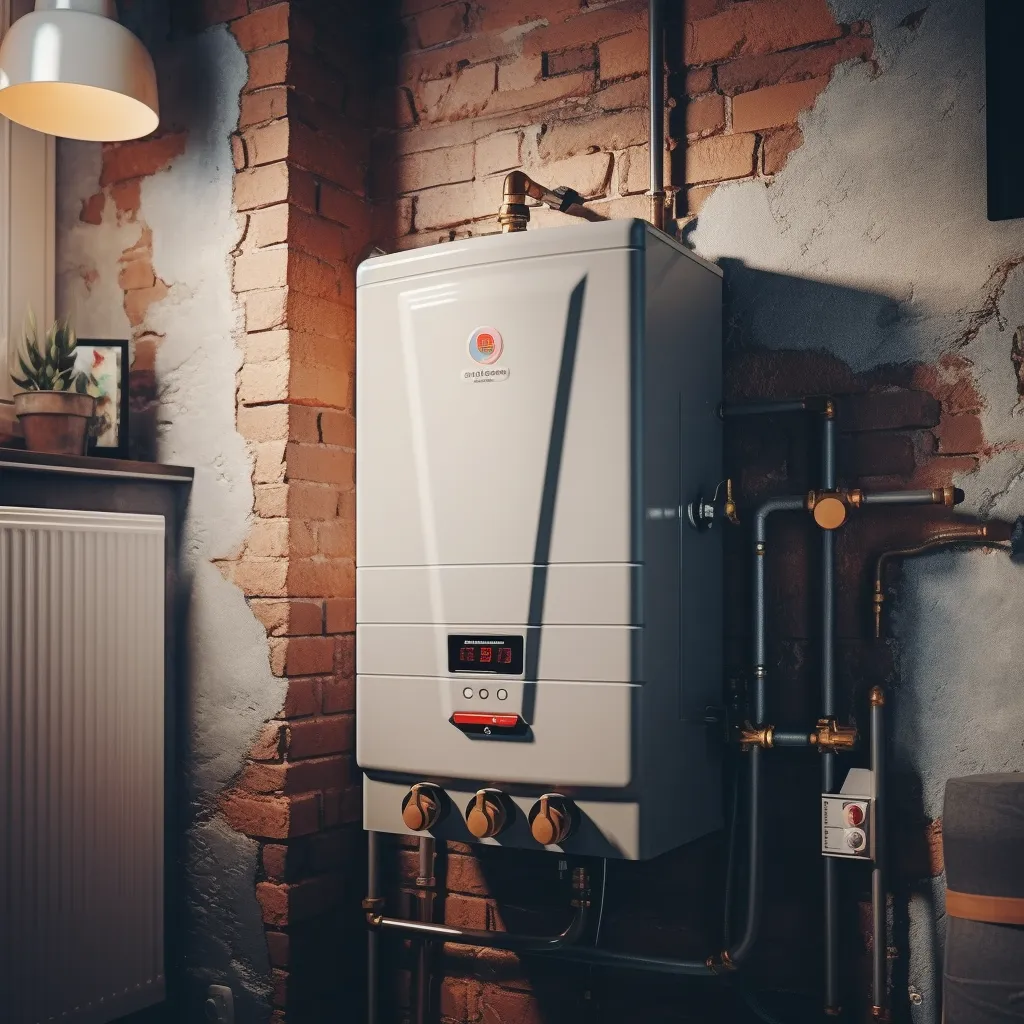
Here's what a dependable solar water heater pro will do
We provide comprehensive solar water heater services to fulfill your requirements.
We can evaluate your water heater and ascertain whether it needs repairs or replacement.
Our team will furnish you with a thorough estimate encompassing labor, materials, and applicable taxes.
We'll help you choose the most suitable solar water heater for your particular needs, taking into account factors like size, efficiency, and cost.
Our seasoned technicians will manage the complete installation procedure, guaranteeing a smooth transition from removing the old water heater to setting up the new one.
Our top priority is ensuring the highest quality of workmanship and parts. We understand the importance of peace of mind for our customers, which is why we offer warranty coverage.
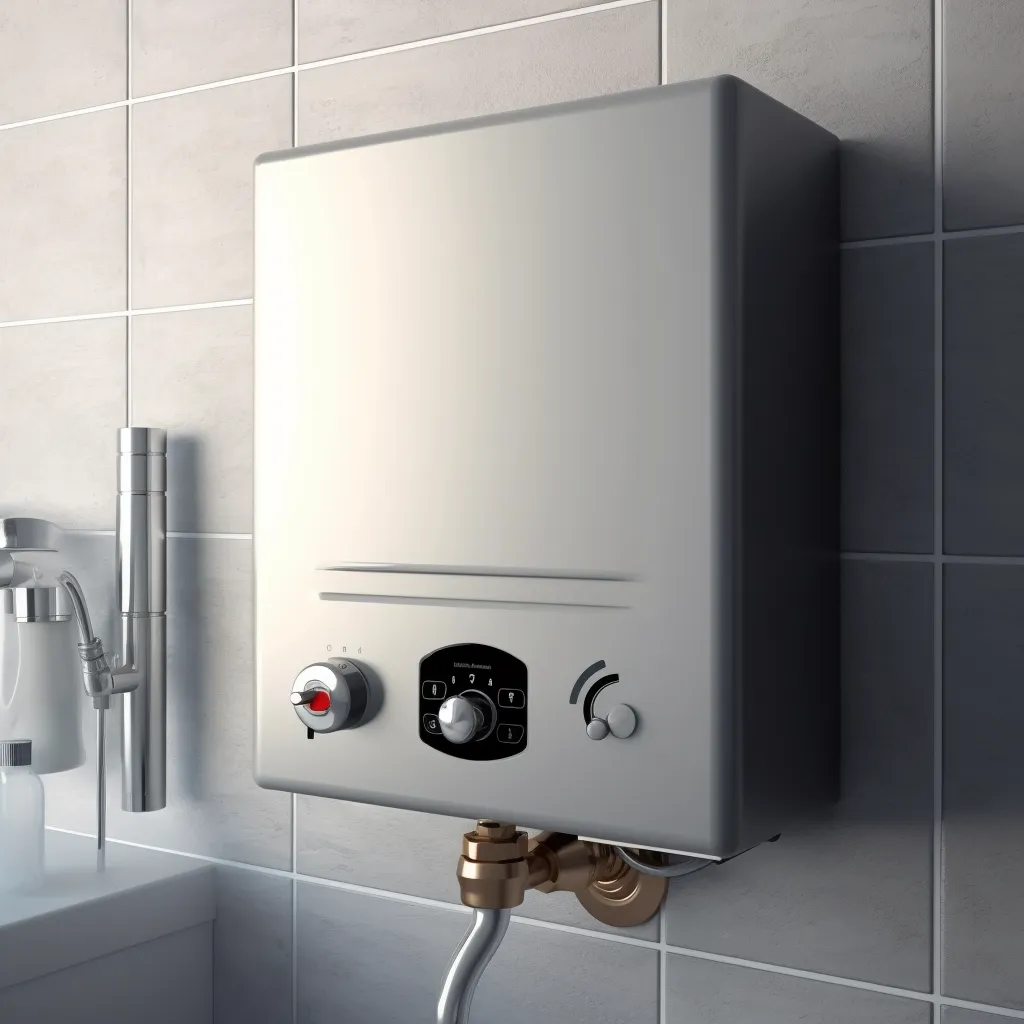
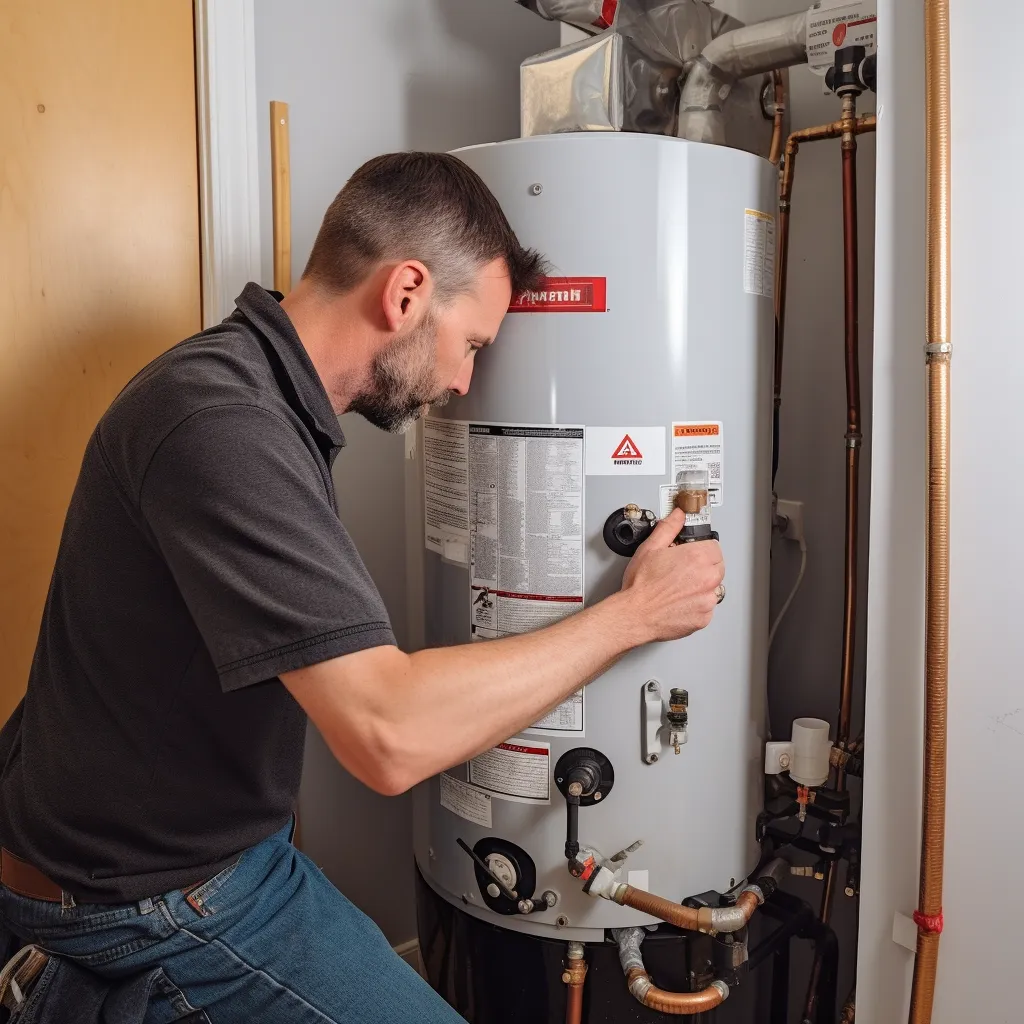
Ready To Save Money And Energy With Solar Water Heating?
Get Your Free Quote Today
Take the first step toward lower utility bills and a more sustainable home. MIL-SPEC makes solar water heater installation in Chandler
simple:
Schedule Your Free Consultation: No-obligation site assessment. Custom savings calculation. Available financing options. Tax incentive review. Same-day quotes.
Our Guarantees
MIL-SPEC promises:
1. Licensed, certified installers.
2. On-time arrival.
3. Clean job sites.
Don't wait - start saving money and energy today. Contact MIL-SPEC now for your free solar water heater consultation in Chandler.
Contact Us
GET IN FULL TOUCH
PHONE:+(480) 470-3216
EMAIL:
adam@waterheaterchandler.com
Mil-Spec LLC
Chandler, AZ 85226
